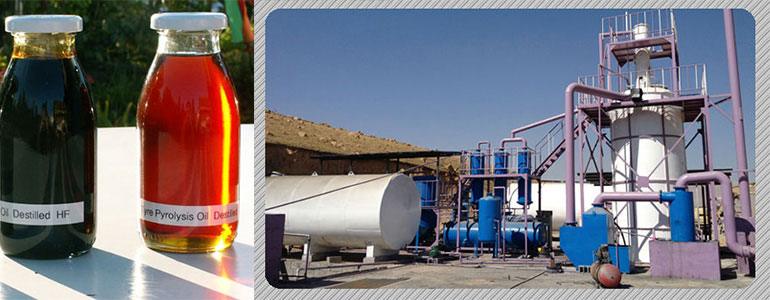
The EU is revising its Renewable Energy Directive (REDII), with an important revision for the use of biofuel.
In June the three EU key institutions, European Parliament, Council and Commission, agreed on a binding renewable energy target of 14% in the transport sector, and for 32% for the EU by 2030, which are to be made up by biofuels.
(more information about biodiesel ,pls click)
First Generation Biofuel
Moreover, of the 14%, no more than 7% can be provided by first generation biofuels, gained out of especially grown food crops, energy crops, such as palm oil, which counts for one third of EU crop biodiesel (according to Transport & Environment).
These crop-based biofuels have an arguable end-to-end sustainability as they cause indirect land use change (ILUC). Often farmers burn down rainforest to free up space for their energy crops, or change the fields for other crops into energy crops.
The EU makes a division between high- and low-ILUC biofuels, and the former in particular, such as palm oil, are supposed to be phased out completely by 2030. The latter will have a 7% cap by 2030. However, the European Commission still has to decide on a certification process for the low-ILUC biofuels that might replace high-ILUC biofuels.
Advanced Biofuel
To reach the 14% biofuels, the Member States have to use advanced biofuels, gained out of non-food crops, waste, and biomass, such as the creation of cellulosic ethanol out of agricultural residues. The revised Renewable Energy Directive (REDII) creates a mandatory advanced biofuel blending mandate for all EU Member States. The share of used advanced biofuels will have to increase gradually, starting at 0.2% in 2022, increasing to 1% in 2025, and ending up to 3.5% in 2030.
Advanced biofuels can be produced by the use of local agricultural residues in the EU, and hence making the EU less dependent on the import of fossil fuels, creating local jobs, and decreasing the environmental impact of transportation of the biofuels. Half of the EU production of crop biodiesel is based on imports of non-EU feedstocks. Most of them come out of Latin America, Asia, and Africa, where, besides the change of land use, the impact on the local ecological and social systems is highly debatable.
Biofuel Fuels the Future?
The agreement between the three EU key institutions is an important step forwards in the revision of the Renewable Energy Directive, however the legislation still has some undecided details left. What’s more the REDII has to be approved formally by the European Parliament and the European Council in the coming months, after which it will have to be implemented by the Member States.